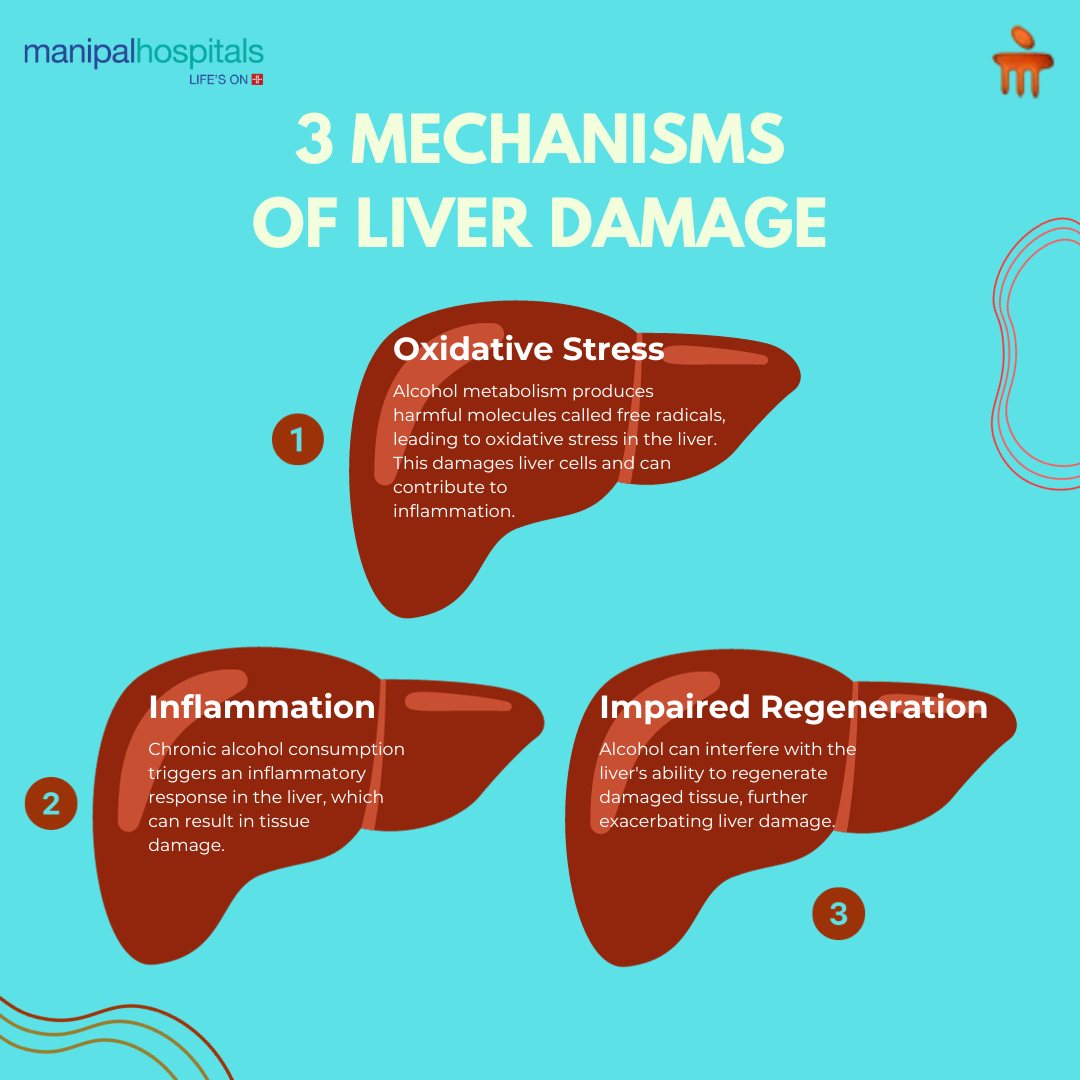
Alcohol is a widely consumed beverage around the world. While moderate alcohol consumption may have some potential health benefits, excessive or long-term alcohol use can be detrimental to various organs, and the liver is particularly vulnerable. In this article, we will explore how alcohol damages the liver and the mechanisms behind it.
Understanding the Liver and Metabolism of Alcohol
Before delving into the effects of alcohol, it's essential to understand the liver's role in the body. The liver is the body's largest internal organ and performs several crucial functions, including detoxification, metabolism, and the production of important proteins.
When you consume alcohol, your liver is responsible for metabolising it. This intricate process begins in the stomach, where a small amount of alcohol is absorbed directly into the bloodstream. The majority, however, passes into the small intestine, where it is absorbed more rapidly and transported to the liver.
The liver's primary task is to break down alcohol into less harmful substances. First, it converts alcohol into acetaldehyde, a highly toxic compound. Acetaldehyde is then further metabolised into acetate, which is eventually broken down into water and carbon dioxide. These byproducts are harmless and can be eliminated from the body.
However, excessive alcohol intake can overwhelm the liver's capacity to process it effectively. When this happens, acetaldehyde levels rise, causing oxidative stress and cellular damage in the liver.
Also Read: Symptoms and Treatment of Alcohol-Related Liver Damage
Impact of Excessive Alcohol Consumption
Excessive alcohol consumption can have a detrimental impact on the health of the liver. It can pose various health risks such as:
-
Fatty Liver: One of the earliest signs of alcohol-induced liver damage is the accumulation of fat in liver cells. This condition is known as alcoholic fatty liver disease (AFLD). AFLD is reversible if alcohol consumption is reduced or stopped at this stage.
-
Alcoholic Hepatitis: Prolonged alcohol abuse can lead to alcoholic hepatitis, which is characterised by liver inflammation. It can cause symptoms such as jaundice, abdominal pain, and nausea. Alcoholic hepatitis can be severe and life-threatening in some cases. Continued alcohol consumption at this stage can rapidly worsen liver damage.
-
Cirrhosis: The most severe consequence of chronic alcohol abuse is cirrhosis. This condition involves the scarring of liver tissue, which impairs liver function and can be life-threatening. Cirrhosis is irreversible, and it drastically reduces the liver's ability to perform its essential functions. Symptoms of cirrhosis can include fatigue, weakness, confusion, and a heightened risk of bleeding.
Mechanisms of Liver Damage

The liver can be damaged because of excessive alcohol consumption through the following mechanisms:
-
Oxidative Stress: Alcohol metabolism produces harmful molecules called free radicals, leading to oxidative stress in the liver. This damages liver cells and can contribute to inflammation. Antioxidants like vitamins E and C may help counteract oxidative stress, but excessive alcohol consumption can deplete these protective compounds.
-
Inflammation: Chronic alcohol consumption triggers an inflammatory response in the liver, which can result in tissue damage. Inflammatory chemicals like cytokines are released, attracting immune cells to the liver. This chronic inflammation can lead to fibrosis (scar tissue formation) and cirrhosis over time.
-
Impaired Regeneration: Alcohol can interfere with the liver's ability to regenerate damaged tissue. The liver is unique in its regenerative capacity, but excessive alcohol consumption disrupts this process. This impaired regeneration contributes to the progression of liver damage.
Dr. K Hemanth Kumar, Consultant - Surgical Gastroenterology, Manipal Hospitals Old Airport Road, shares his insights on the effects of alcohol on men's health. Watch this video to know more.
Prevention and Treatment
The best way to prevent alcohol-related liver damage is to consume alcohol in moderation or abstain from it altogether. If you or someone you know is struggling with alcohol abuse, it's essential to seek professional help and support groups.
Risk Factors
The risk of liver damage is directly related to the quantity and duration of alcohol consumption. Chronic heavy drinking significantly increases the likelihood of developing liver problems. In addition to that, genetic factors can influence how an individual's liver processes alcohol, making some people more susceptible to damage than others. Some individuals may develop liver issues with lower alcohol consumption levels due to genetic predisposition.
Alcohol can have a devastating impact on the liver when consumed excessively or over an extended period. Understanding the mechanisms behind this damage and the importance of moderation can help individuals make informed choices about their alcohol consumption, safeguarding their liver and overall health.
FAQ's
There's no one-size-fits-all natural cure, but maintaining a healthy weight, eating a balanced diet, staying hydrated, and consulting a doctor about liver-supporting supplements can all aid healing alongside stopping alcohol.
Early stages of liver damage like fatty liver disease can be reversed with complete alcohol abstinence. More advanced stages like cirrhosis are irreversible, but stopping alcohol can prevent further damage.
The best way to treat liver damage from alcohol is to stop drinking alcohol altogether. In some cases, medication and dietary changes might be recommended by a doctor. It's important to consult a doctor for proper diagnosis and treatment
Early symptoms can be subtle like fatigue or nausea. Later stages might show jaundice, dark urine, or confusion. If you're a heavy drinker and experience any of these, see a doctor asap.
Excessive alcohol consumption disrupts the liver's ability to process toxins, leading to a buildup of damaging byproducts. It also triggers inflammation and impairs the liver's natural regeneration process. Stopping alcohol is key to allowing the liver to heal.





















 3 Min Read
3 Min Read






